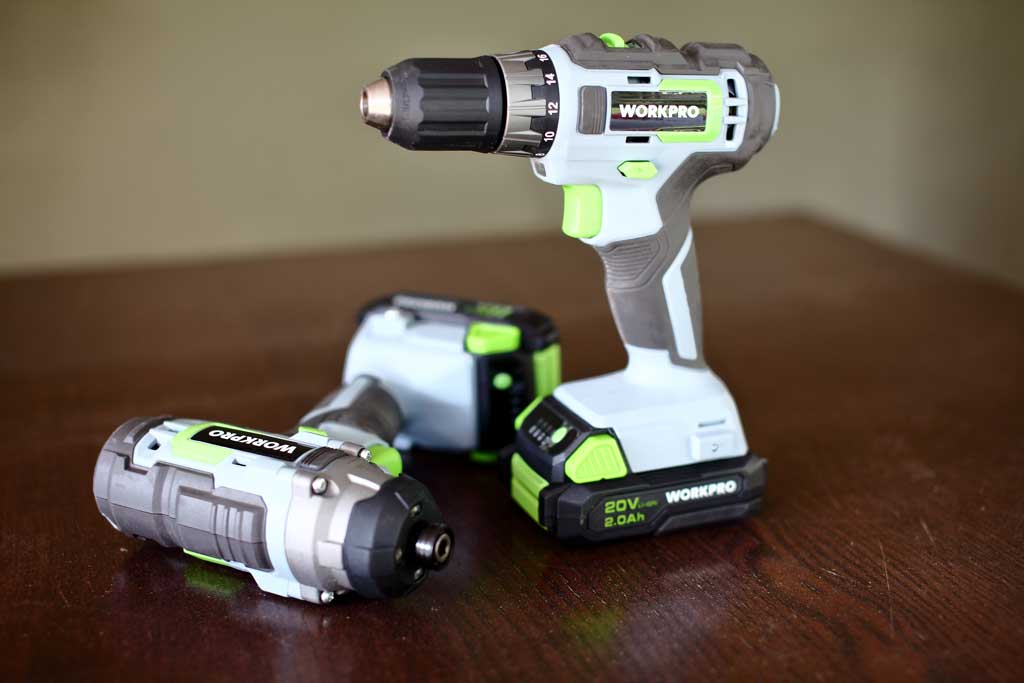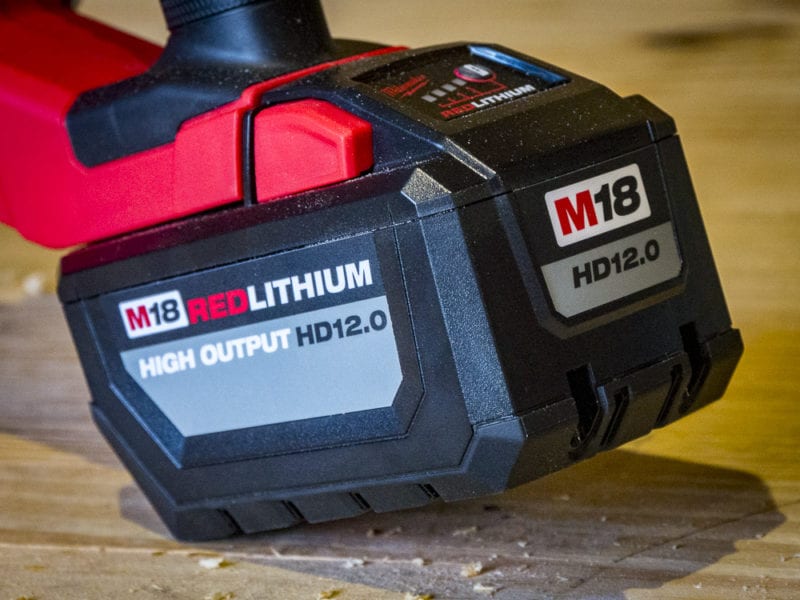Hey there, curious minds! Have you ever wondered how long a power tool battery lasts? Well, wonder no more! In this article, we’ll dive into the world of power tools and discover just how long these batteries can keep you up and running. So, buckle up and let’s get started!
When you’re working on a project, the last thing you want is for your power tool battery to die on you. It can be frustrating, right? But fear not, my friends, because I’ve got the answers you seek. We’ll explore the factors that affect battery life and uncover some tips to make your battery last longer.
Are you ready to unlock the secrets of power tool batteries? Great! In the next few paragraphs, we’ll uncover the truth about battery lifespan and empower you with the knowledge you need to keep your tools running smoothly. Let’s dive in!

How Long Does a Power Tool Battery Last?
Introduction:
Power tools are essential equipment for both professionals and DIY enthusiasts. One of the crucial components of a power tool is its battery, as it determines the tool’s runtime and performance. Understanding how long a power tool battery lasts is vital for planning your work and ensuring uninterrupted productivity. In this article, we will explore the factors that affect the lifespan of a power tool battery and provide tips to maximize its longevity.
Factors Affecting the Lifespan of a Power Tool Battery
Several factors play a role in determining how long a power tool battery will last. Let’s take a closer look at some of the key factors:
1. Battery Chemistry: Power tool batteries come in different chemistries, such as lithium-ion (Li-Ion) and nickel-cadmium (NiCd). Li-Ion batteries generally last longer than NiCd batteries, providing extended runtime and better overall performance.
2. Battery Capacity: The capacity of a power tool battery is measured in ampere-hours (Ah). A higher capacity battery will typically last longer than one with a lower capacity. However, it’s important to note that higher capacity batteries may also weigh more and increase the overall weight of the power tool.
3. Usage Patterns: How often and how intensely you use your power tool will impact the lifespan of the battery. Continuous heavy use will shorten the battery’s life, while occasional use or lighter tasks may extend its longevity.
Benefits of Using Lithium-Ion Batteries
Li-Ion batteries have gained popularity in the power tool industry due to their numerous benefits. Here are a few advantages of using Li-Ion batteries:
1. Longer Runtime: Li-Ion batteries have a higher energy density, allowing power tools to run for a longer time on a single charge. This makes them ideal for demanding tasks or projects that require extended runtime.
2. Lightweight Design: Compared to other battery chemistries, Li-Ion batteries are significantly lighter, reducing the overall weight of the power tool. This makes them easier to handle and more comfortable to use, especially during prolonged periods of work.
3. No Memory Effect: Li-Ion batteries do not suffer from the memory effect, a phenomenon that causes batteries to lose their capacity over time if not fully discharged before recharging. This means you can recharge a Li-Ion battery at any time without worrying about reduced capacity.
Tips to Maximize the Lifespan of Your Power Tool Battery
Here are some practical tips to help you maximize the lifespan of your power tool battery:
- Proper Charging: Follow the manufacturer’s instructions for charging your power tool battery. Overcharging or undercharging can affect its performance and lifespan. Most modern chargers have built-in mechanisms to prevent these issues.
- Temperature Considerations: Extreme temperatures can negatively impact battery performance. Avoid exposing the battery to extreme heat or cold, as it can shorten its lifespan. Store the battery in a cool, dry place when not in use.
- Avoid Deep Discharge: While Li-Ion batteries do not suffer from the memory effect, deep discharging them frequently can still reduce their lifespan. Try to recharge the battery before it reaches a critically low level.
Additional Information: Battery Maintenance and Replacement
In addition to the tips mentioned above, proper maintenance and timely replacement of your power tool battery can significantly impact its lifespan. Regularly cleaning the battery contacts with a soft cloth and ensuring they are free from dirt and debris can help maintain optimal performance.
If you notice a significant decline in the battery’s runtime or if it fails to hold a charge even after proper maintenance, it may be time to consider replacing it. Consult the manufacturer’s guidelines and recommendations for the specific power tool model to find the compatible replacement battery.
Conclusion
Knowing how long a power tool battery lasts and implementing proper care and maintenance practices can save you time and money. The factors that affect battery lifespan, such as chemistry and capacity, should be considered when selecting a power tool. By understanding the benefits of using Li-Ion batteries and following the tips provided, you can maximize the lifespan of your power tool battery, ensuring optimal performance for your projects.
How Long Does a Power Tool Battery Last?
Have you ever wondered how long a power tool battery can last? Here are the key takeaways:
- 1. The lifespan of a power tool battery depends on various factors such as the brand, usage frequency, and maintenance.
- 2. On average, power tool batteries can last between 2-5 years.
- 3. Lithium-ion batteries tend to have a longer lifespan compared to NiCad batteries.
- 4. Proper charging and storage can extend the longevity of the battery.
- 5. It’s important to follow the manufacturer’s recommendations for charging and maintaining the battery.
Frequently Asked Questions
Welcome to our Frequently Asked Questions section where we’ll be addressing some common queries related to power tool battery life. Whether you’re a DIY enthusiast or a professional tradesperson, understanding how long power tool batteries last is crucial for planning your projects effectively. Let’s dive into the questions you may have!
1. How can I maximize the lifespan of my power tool battery?
The lifespan of a power tool battery can be extended through a few simple practices. First and foremost, make sure to store your batteries in a cool and dry environment when not in use. Avoid exposing them to extreme heat or cold temperatures as this can degrade their performance.
Additionally, regular charging and discharging cycles are crucial to keep your battery healthy. Avoid fully depleting your battery before recharging it; instead, try to recharge it when it reaches around 20-30% capacity. Finally, always use the appropriate charger designed for your specific power tool battery to ensure optimal charging.
2. How long does the average power tool battery last before needing to be replaced?
The lifespan of a power tool battery can vary depending on several factors, such as the battery type, usage patterns, and the quality of the battery itself. On average, you can expect a power tool battery to last anywhere from 1 to 5 years, with lithium-ion batteries typically having a longer lifespan compared to nickel-cadmium (Ni-Cd) batteries.
However, it’s important to note that the overall battery life is influenced by usage habits. Frequent and prolonged use of power tools can decrease the battery lifespan, while infrequent use may result in a longer battery life. Regular maintenance and care can help maximize the longevity of your power tool battery.
3. How can I determine if my power tool battery needs to be replaced?
There are a few signs that indicate it may be time to replace your power tool battery. One common sign is reduced runtime, where the battery doesn’t last as long as it used to on a full charge. If you notice a significant decrease in the amount of work you can complete before needing to recharge, it may be a sign of a deteriorating battery.
Another indicator is a decrease in overall power output. If you’re experiencing a decrease in the performance of your power tools, such as reduced torque or slower rotations per minute (RPM), it could be due to an aging battery. Finally, if you notice any physical damage, such as swelling or leakage, it’s best to replace the battery immediately for safety reasons.
4. Is it possible to revive a dead power tool battery?
In some cases, it may be possible to revive a seemingly dead power tool battery. One method is to try a process called “reconditioning,” which involves fully discharging the battery, then slowly recharging it several times. This can sometimes help remove any memory effect that may be causing the battery to lose its capacity.
However, it’s important to note that reconditioning does not guarantee success and may not work for all types of batteries. If reconditioning doesn’t improve the battery’s performance, it’s best to invest in a new battery to ensure optimal power tool functionality.
5. Are all power tool batteries interchangeable between different brands?
Unfortunately, power tool batteries are not interchangeable between different brands. Each power tool manufacturer designs their batteries to be compatible only with their specific brand and model. The physical design, voltage, and other specifications can vary, making it necessary to use the same brand’s battery for a particular power tool.
While this can be inconvenient if you use tools from different brands, it’s crucial to adhere to the manufacturer’s guidelines to ensure safety and optimal performance. Using compatible batteries is essential for proper functioning and can prevent damage to both the tool and the battery.

Tips to Make Your Batteries Last Longer — Extends Battery Life SIGNIFICANTLY!
Summary
So, now you know how long a power tool battery can last. It depends on many factors like the type of tool, battery capacity, and usage. A lithium-ion battery can provide around 1-2 hours of continuous use, but it may vary. Remember to charge and store your batteries properly to extend their lifespan. Taking good care of your batteries will ensure they last as long as possible and keep your power tools running smoothly.
In conclusion, power tool battery life is influenced by various factors and can vary greatly. By understanding these factors and taking proper care of your batteries, you can maximize their lifespan and get the most out of your tools. Happy DIY-ing!
